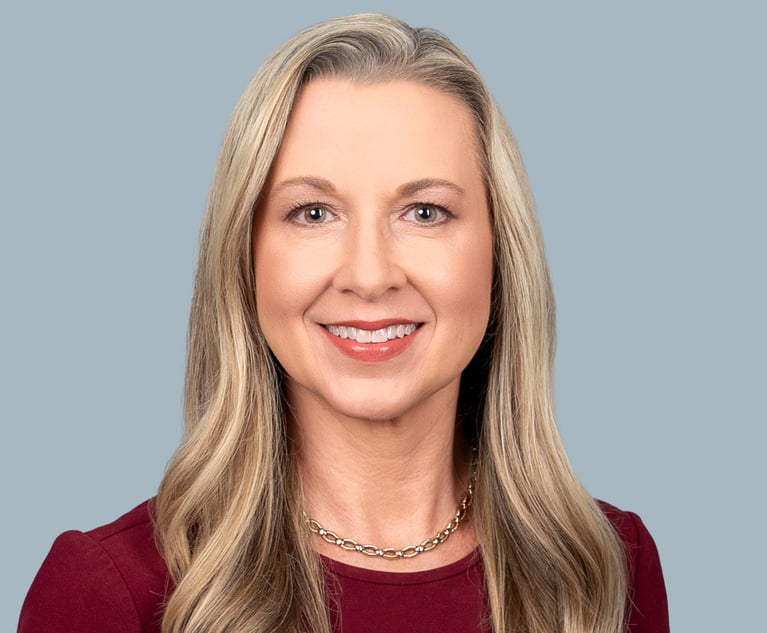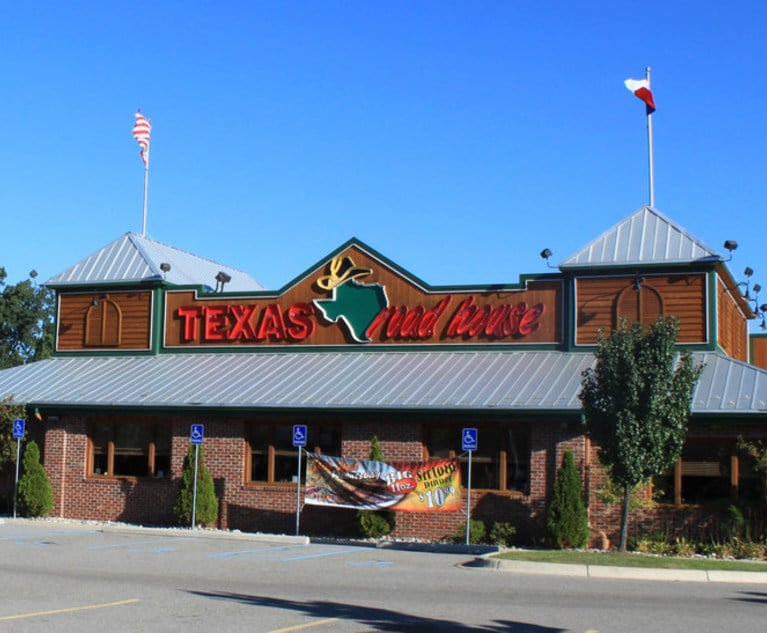 Credit: Tibanna79/Shutterstock.com
Credit: Tibanna79/Shutterstock.comSan Francisco Passes Ban on E-Cigarettes
The ordinance, which could take effect in 2020, will bar tobacco shops from selling any e-cigarette product that has not gone through the FDA premarket approval process. No e-cigarette or vaping product has gone through that process.
June 26, 2019 at 05:54 PM
3 minute read
San Francisco's board of supervisors voted Tuesday to ban the sale of e-cigarettes, and companies operating in that space have both political and legal courses they can take to reverse the ban, according to experts in the field.
San Francisco Mayor London Breed has 10 days to sign the ordinance. The ordinance, which could take effect as soon as the beginning of 2020, will bar tobacco shops from selling any e-cigarette product that has not gone through the Food and Drug Administration premarket approval process. No e-cigarette or vaping product has gone through that process. The ordinance will also ban those products from being shipped into the city.
A representative from Juul, which is headquartered in San Francisco, said the move will cause former adult smokers to go back to cigarettes. The representative said Juul is looking to help enact strict e-cigarette regulation that would still allow adults to purchase e-cigarettes.
“We will continue to work with local policymakers, small businesses, community leaders and adult smokers who have switched to vapor products to enact stronger regulation and enforcement rather than complete prohibition, because this will primarily drive adult smokers back to cigarettes, which remain untouched by this legislation, even though they kill 40,000 Californians every year,” the representative said.
Since the ordinance has not taken effect yet, Agustin Rodriguez, counsel at Troutman Sanders in Richmond, Virginia, said there are a couple of different paths e-cigarette companies could go down to turn around the ordinance.
“In addition to pursuing political routes, which I understand Juul to be doing, the industry is going to want to consider its options, which will include arguments involving federal preemption, First Amendment protections and constitutional takings claims,” Rodriguez said.
Rodriguez, who previously worked as associate general counsel at Altria, said a legal challenge to the ordinance is likely and he is not sure how courts would rule.
“I think there is incredible uncertainty as to whether a court would uphold this type of ban if challenged,” Rodriguez said.
Legal action appears likely, Azim Chowdhury, a partner at Keller and Heckman in Washington, D.C., said.
“On behalf of the industry, we are exploring legal options should this [ordinance] go into effect,” Chowdhury said.
If the mayor signs the legislation and the ordinance is not stricken down by the courts, Chowdhury said he would suspect other municipalities in California and across the country to follow suit.
“It seems like these things tend to build off of each other,” Chowdhury said. “Other cities might come through and emulate the approach. We've seen that with flavor bans.”
He said other jurisdictions around the country have proposed those at a minimum.
“I know San Francisco has put it out there that other jurisdictions should follow their lead,” Chowdhury said.
Matthew L. Myers, president of Campaign For Tobacco-Free Kids, said in a statement that this action is the result of the FDA's failure to review these kinds of products.
“San Francisco's action is a reflection of its frustration with the FDA's failure to act and review e-cigarettes as required by federal law,” Myers said. “It sends a message that if the FDA doesn't do its job to protect kids and public health, we can see more local jurisdictions filling the void one way or the other.”
This content has been archived. It is available through our partners, LexisNexis® and Bloomberg Law.
To view this content, please continue to their sites.
Not a Lexis Subscriber?
Subscribe Now
Not a Bloomberg Law Subscriber?
Subscribe Now
NOT FOR REPRINT
© 2025 ALM Global, LLC, All Rights Reserved. Request academic re-use from www.copyright.com. All other uses, submit a request to [email protected]. For more information visit Asset & Logo Licensing.
You Might Like
View All
Ex-Six Flags CLO Lands New C-Suite Post—This Time as HR Chief

'Erroneous Assumption'?: Apple Challenges DOJ Antitrust Remedy in Google Search Monopoly Case
3 minute read
Riding High, Texas Roadhouse Gives Legal Chief 3-year Contract Extension,15% Salary Boost
2 minute read
'True Leadership Is About Putting Others First': 2024 In-House Award Winners Inspired, Took Road Less Traveled
Trending Stories
- 1Tensions Run High at Final Hearing Before Manhattan Congestion Pricing Takes Effect
- 2Improper Removal to Fed. Court Leads to $100K Bill for Blue Cross Blue Shield
- 3Michael Halpern, Beloved Key West Attorney, Dies at 72
- 4Burr & Forman, Smith Gambrell & Russell Promote More to Partner This Year
- 5Sanctions Order Over Toyota's Failure to Provide English Translations of Documents Vacated by Appeals Court
Who Got The Work
Michael G. Bongiorno, Andrew Scott Dulberg and Elizabeth E. Driscoll from Wilmer Cutler Pickering Hale and Dorr have stepped in to represent Symbotic Inc., an A.I.-enabled technology platform that focuses on increasing supply chain efficiency, and other defendants in a pending shareholder derivative lawsuit. The case, filed Oct. 2 in Massachusetts District Court by the Brown Law Firm on behalf of Stephen Austen, accuses certain officers and directors of misleading investors in regard to Symbotic's potential for margin growth by failing to disclose that the company was not equipped to timely deploy its systems or manage expenses through project delays. The case, assigned to U.S. District Judge Nathaniel M. Gorton, is 1:24-cv-12522, Austen v. Cohen et al.
Who Got The Work
Edmund Polubinski and Marie Killmond of Davis Polk & Wardwell have entered appearances for data platform software development company MongoDB and other defendants in a pending shareholder derivative lawsuit. The action, filed Oct. 7 in New York Southern District Court by the Brown Law Firm, accuses the company's directors and/or officers of falsely expressing confidence in the company’s restructuring of its sales incentive plan and downplaying the severity of decreases in its upfront commitments. The case is 1:24-cv-07594, Roy v. Ittycheria et al.
Who Got The Work
Amy O. Bruchs and Kurt F. Ellison of Michael Best & Friedrich have entered appearances for Epic Systems Corp. in a pending employment discrimination lawsuit. The suit was filed Sept. 7 in Wisconsin Western District Court by Levine Eisberner LLC and Siri & Glimstad on behalf of a project manager who claims that he was wrongfully terminated after applying for a religious exemption to the defendant's COVID-19 vaccine mandate. The case, assigned to U.S. Magistrate Judge Anita Marie Boor, is 3:24-cv-00630, Secker, Nathan v. Epic Systems Corporation.
Who Got The Work
David X. Sullivan, Thomas J. Finn and Gregory A. Hall from McCarter & English have entered appearances for Sunrun Installation Services in a pending civil rights lawsuit. The complaint was filed Sept. 4 in Connecticut District Court by attorney Robert M. Berke on behalf of former employee George Edward Steins, who was arrested and charged with employing an unregistered home improvement salesperson. The complaint alleges that had Sunrun informed the Connecticut Department of Consumer Protection that the plaintiff's employment had ended in 2017 and that he no longer held Sunrun's home improvement contractor license, he would not have been hit with charges, which were dismissed in May 2024. The case, assigned to U.S. District Judge Jeffrey A. Meyer, is 3:24-cv-01423, Steins v. Sunrun, Inc. et al.
Who Got The Work
Greenberg Traurig shareholder Joshua L. Raskin has entered an appearance for boohoo.com UK Ltd. in a pending patent infringement lawsuit. The suit, filed Sept. 3 in Texas Eastern District Court by Rozier Hardt McDonough on behalf of Alto Dynamics, asserts five patents related to an online shopping platform. The case, assigned to U.S. District Judge Rodney Gilstrap, is 2:24-cv-00719, Alto Dynamics, LLC v. boohoo.com UK Limited.
Featured Firms
Law Offices of Gary Martin Hays & Associates, P.C.
(470) 294-1674
Law Offices of Mark E. Salomone
(857) 444-6468
Smith & Hassler
(713) 739-1250






